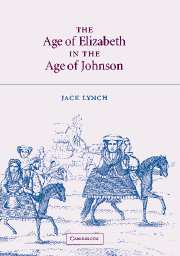Book contents
- Frontmatter
- Contents
- Preface
- Note on the texts and citation
- List of abbreviations
- Introduction
- 1 Struggling to emerge from barbarity: historiography and the idea of the classic
- 2 Learning's triumph: historicism and the spirit of the age
- 3 Call Britannia's glories back to view: Tudor history and Hanoverian historians
- 4 The rage of Reformation: religious controversy and political stability
- 5 The ground-work of stile: language and national identity
- 6 Studied barbarity: Jonson, Spenser, and the idea of progress
- 7 The last age: Renaissance lost
- Notes
- Bibliography
- Index
6 - Studied barbarity: Jonson, Spenser, and the idea of progress
Published online by Cambridge University Press: 22 September 2009
- Frontmatter
- Contents
- Preface
- Note on the texts and citation
- List of abbreviations
- Introduction
- 1 Struggling to emerge from barbarity: historiography and the idea of the classic
- 2 Learning's triumph: historicism and the spirit of the age
- 3 Call Britannia's glories back to view: Tudor history and Hanoverian historians
- 4 The rage of Reformation: religious controversy and political stability
- 5 The ground-work of stile: language and national identity
- 6 Studied barbarity: Jonson, Spenser, and the idea of progress
- 7 The last age: Renaissance lost
- Notes
- Bibliography
- Index
Summary
The early eighteenth century was proud of its poetry, and convinced of its superiority to what came before it. In place of rude stories in faltering meter, Pope's readers had available to them a body of elegant, refined, and eminently proper poetry. Even the enemies of Dryden and Pope – and there were many – could not deny the excellence of their versification. Nearly everyone agreed the verse of the later seventeenth century showed tremendous advances in both technique and decorum over that of the sixteenth, to say nothing of the thirteenth or fourteenth, and that Denham, Waller, and Dryden had achieved mastery where their predecessors had failed.
Things had been worst, of course, in the Gothic ages. Impressing readers with the darkness of the Dark Ages was therefore de rigueur for early eighteenth-century writers such as Addison, for whom the Middle Ages were a time of “Darkness and Superstition … when pious Frauds were made use of to amuse Mankind, and frighten them into a Sense of their Duty. Our Forefathers … loved to astonish themselves with the Apprehensions of Witchcraft, Prodigies, Charms and Enchantments.” Although “Prodigies, Charms and Enchantments” would be worthy of praise a century later for, say, Coleridge and Keats, for Addison they deserved only vilification. Most early eighteenth-century critics saw little else in the Middle Ages, and those few whose interest in medieval authors extended beyond mere antiquarianism valued primarily their anticipation of what was to come.
- Type
- Chapter
- Information
- The Age of Elizabeth in the Age of Johnson , pp. 120 - 142Publisher: Cambridge University PressPrint publication year: 2002

